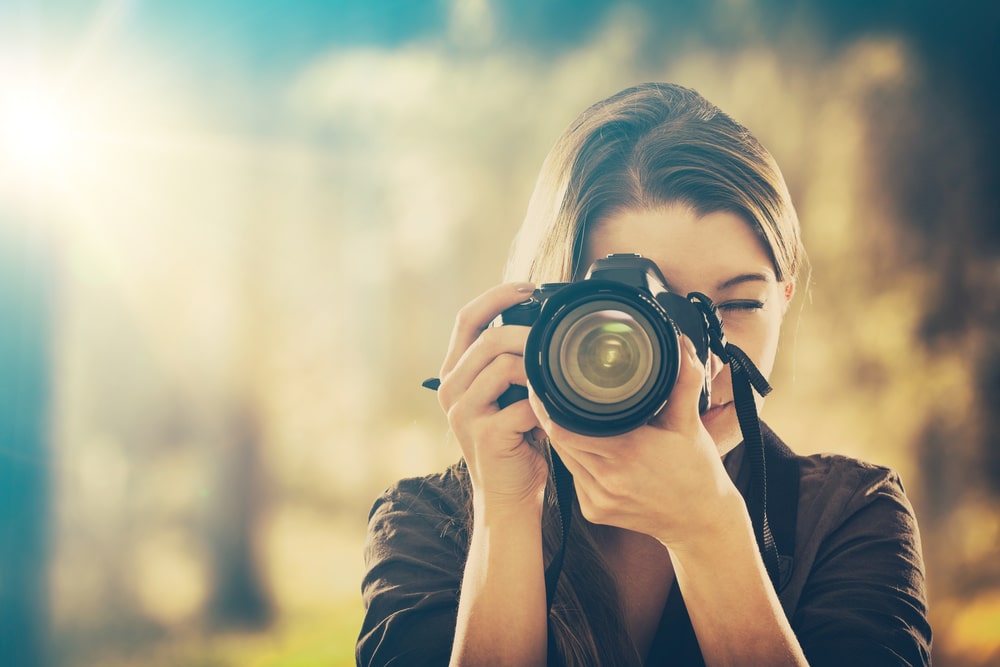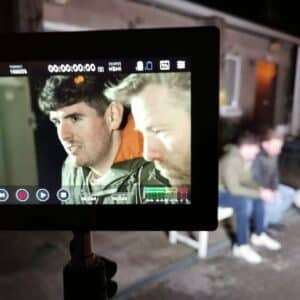Are you hungry to be creative? Do you have an eye for detail? Do you love to take pictures – not just selfies but of the world around you. Whether that be catching a great image or noticing a great light or capturing a moment in time. If you have a passion for taking photographs then maybe you should consider taking it further and studying it. Here we look at why you should take your hobby to the next level and become a photography student with our 5 Reasons To Study Photography.
5 Reasons To Study Photography
Technical skills
It’s one thing to point and click and take a picture and quite another to know the mechanics behind how a camera works and what you can make it do. Understanding the technical skills involved in creating photographic images will make you a much better photographer. Understanding how camera equipment operates means that you can control what you want it to do and, as a result, create an image the way you want it to look. Knowing all about the likes of aperture, shutter speed and exposure working together and understanding f-stops and IS will help make you a much more photographer.
Creative skills
Studying photography is a great way to hone your creative skills. Understanding rules of composition hugely improves your final images. Certain creative skills such as understanding the Rule of Thirds, Symmetry, depth of field, how angles work, framing are essential weapons in your creative armour and will help make your images stand out from the crowd. These creative skills combine to help your pictures tell the perfect story and help to successfully communicate your ideas through your photographs.
The latest technologies
Studying photography means becoming an expert on all the latest and biggest innovation in photography technologies – including developments in both hardware (cameras, lenses, tripods, lights, and all the other physical equipment) and software (visual editing software). Taking a course in photography is the best way to learn how to handle a camera to use it to its best potential while also diving deep into editing software and exploring all the possibilities of processing, manipulating and taking control of all your images
Practical experience
You will gain vital practical experience when you study photography. Courses will often include field-trips and set-up workshops and assignments, all of which will enable you to put to use all the skills and knowledge you have acquired. These will be carefully curated and based around particular themes that are devised to help you to learn, and then draw on, a particular set of skills.
Supervision
Studying photography is a great way to get practical experience under the supervision of a professional photographer who can explain, demonstrate and assist you in learning more and honing your skills. Also you will be getting feedback on your work which you can learn and become better from.
Studying photography is an ideal way to exercise your own critical thinking skills and supervision will include the opportunity for you to ask questions around the photographic image. For example, “Why do you think this particular photographer framed the subject in this way?”. “What effect does the light play in this particular image?” “What story is the photographer trying to tell in this particular image?”, etc.
Supervised courses will often also include recommended reading, which will enlighten your understanding of photography, whether it be the Metropolitan Museum of Art’s Timeline of Art History, On Photography by Susan Sontag or Photography: A Critical Introduction by Liz Wells. Such reading will give you better insight into the art, culture, progress and process of image making.
Portfolio
Studying photography is the perfect way to build a professional portfolio, which you can use on your journey to becoming a professional photographer. You will always be asked to provide a portfolio of some sorts when you are applying for work/jobs/gigs. What better time to start your portfolio than when you are studying photography and acquiring all the necessary skills and advantages mentioned above that taking a course affords. You will be building a great resource of pictures reflecting your talents and skills to share with potential employers/ clients which demonstrate your style, range and ability.
Are you interested in studying photography? Explore our list of Photography Courses & Digital Photography Courses around the country.












Comments